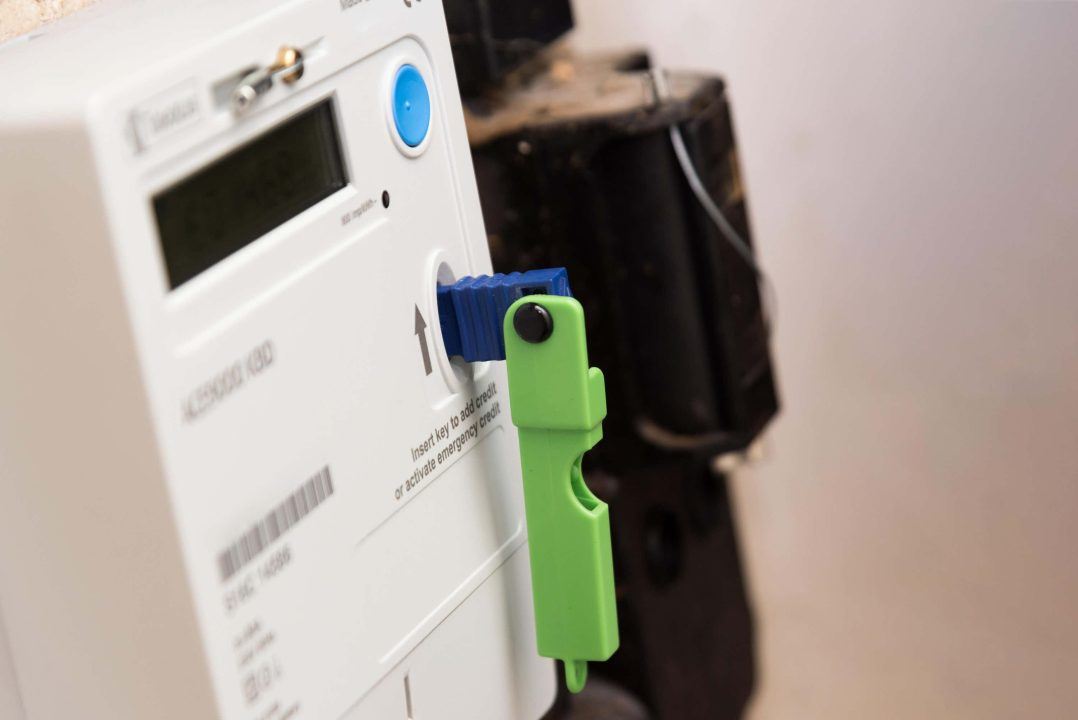Thousands of energy customers who had prepayment energy meters (PPMs) force-fitted are to receive compensation or have their debts written off, Ofgem has said.
The regulator announced that eight companies will hand out compensation and support after a review into consumers struggling with energy bills who were forced to have pay-as-you-go meters installed.
Scottish Power, EDF, E.ON, Utility Warehouse, Good Energy, TruEnergy, and Ecotricity have all agreed to the scheme.
Ofgem said suppliers have committed to pay both additional compensation where it is due, and in some cases write off some energy debt of customers who had an involuntary PPM installed during the assessment period of January 1, 2022, to January 31, 2023.
Suppliers will pay £5.6m in compensation, using the guidelines set out by Ofgem, to 40,000 customers who had an involuntary PPM installed during the assessment period.
Suppliers will also write off a further £13m of debt from customers who had an involuntary PPM during the assessment period.
This comes on top of £55m of financial support provided directly to affected consumers by suppliers prior to the completion of the review in the form of hardship payments and debt write-off, the regulator said.
Customers identified as having had a PPM wrongly installed or where processes were not followed adequately between January 1, 2022, and January 31, 2023, will be contacted by their suppliers, and do not need to take action.
OVO has also confirmed it will pay compensation to customers in line with the guidelines developed by Ofgem.
Tim Jarvis, director-general of markets for Ofgem, said: “This has been one of the most detailed reviews of supplier practices in Ofgem’s history, looking at tens of thousands of cases. It has taken time, but our priority has been to put things right for those who weren’t treated properly, and ensure we don’t see bad practice repeated.
“While the number of cases where a prepayment meter was wrongfully installed is relatively low compared to the total number of PPM customers, one case is one too many.
“Our review also found wider issues with the processes suppliers had in place, which is why we’ve put in place clearer, tougher rules to protect customers in vulnerable situations, and I’m pleased that from today suppliers will be applying our compensation framework for those customers affected and have also committed to further support such as debt write-off.
“We have made our expectations clear to suppliers on how those customers who were treated poorly should be compensated. They have, and continue to, work closely and collaboratively with us to make sure their processes are robust and that their customers are properly supported.
“We know that PPMs can be an effective tool in helping customers manage their costs and debt. However, customers must always be treated fairly and compassionately, and we are confident that the changes we have made are a significant step to ensure that happens.”
Dhara Vyas, chief executive of Energy UK, which represents energy firms, said: “Suppliers have worked hard to co-operate with this comprehensive review and taken further action to put things right in the cases where a prepayment meter (PPM) shouldn’t have been installed – or where there was insufficient support for the customers concerned.
“Suppliers have been working closely with Ofgem to meet the requirements of its review and have signed up to the Code of Practice before they have been able to restart involuntary installations of PPMs and have carried out thorough testing of the new processes.
“Involuntary installations have been a last – but necessary – resort for cases where repeated attempts to address debt with the customer through other means have been unsuccessful. It’s bad for customers to fall further and further into arrears, and bad debt ultimately drives up the prices that are paid by all customers.
“Since the pause on installations, customer debt has risen to a record £4 billion, and the industry remains keen to work with Ofgem on the proposed relief scheme to tackle this problem.”
Energy secretary Ed Miliband said: “Justice is finally being delivered to many of the families, lots of them vulnerable, who were affected by the scandal of energy suppliers wrongly forcibly installing prepayment meters.
“The Government has campaigned tirelessly on this issue and are pleased to see the level of compensation increase to £18.6m, up from £420,000 under the previous government.
“Consumers must come first, which is why we are reforming the energy market to stamp out bad practice and make it easier to access proper redress when things go wrong, through our comprehensive review of Ofgem. This increased compensation package is a good start, and we will be announcing further reforms in the weeks ahead as we deliver our Plan for Change.”
The scandal first made headlines two years ago, at the peak of the cost-of-living crisis, when it came to light that energy companies were switching people on to prepayment methods.
This was done by entering properties to install a smart meter or remotely changing a smart meter to prepayment mode.
The energy regulator subsequently suspended all forced installations and launched a review of the process.
It comes weeks after Good Energy was made to pay £150,000 in compensation and redress after it failed to give final bills and refund credit to more than 2,000 prepayment meter customers.
Ofgem said 2,284 customers on prepayment meters were affected by an error with Good Energy’s billing system between 2014 and October 2023.
It meant that prepayment customers who switched to another supplier or ended their contract with Good Energy did not get a final bill within six weeks, as required by the watchdog.
Good Energy paid out £150,067 as a result, with the average sum per customer standing at £66.
Follow STV News on WhatsApp
Scan the QR code on your mobile device for all the latest news from around the country


 PA Media
PA Media
























